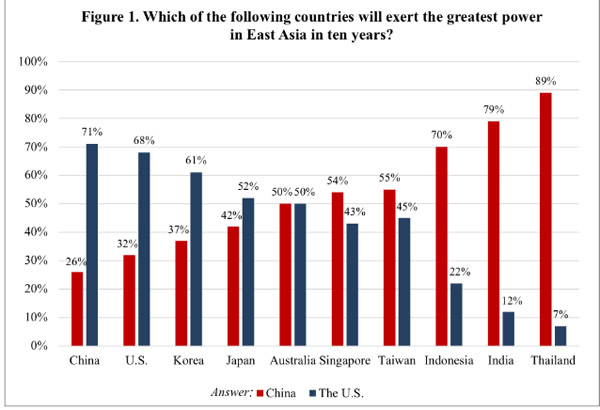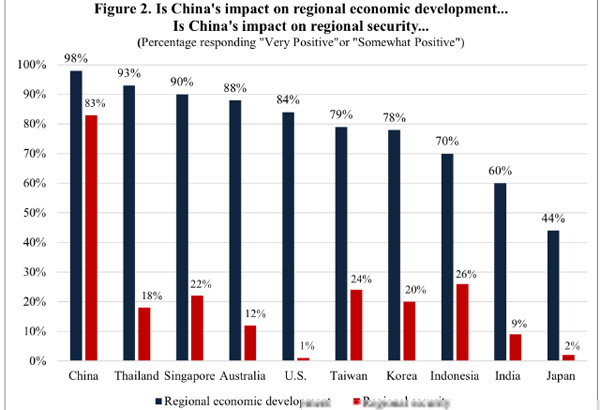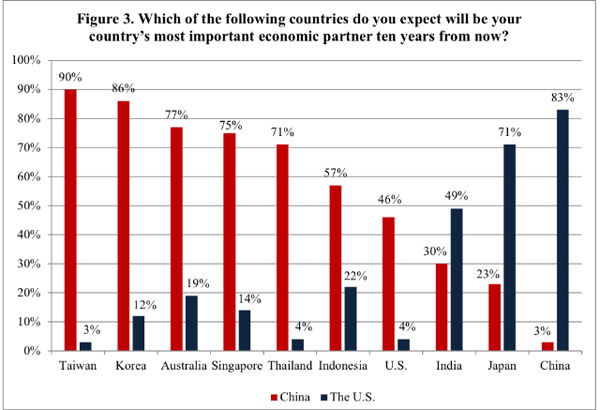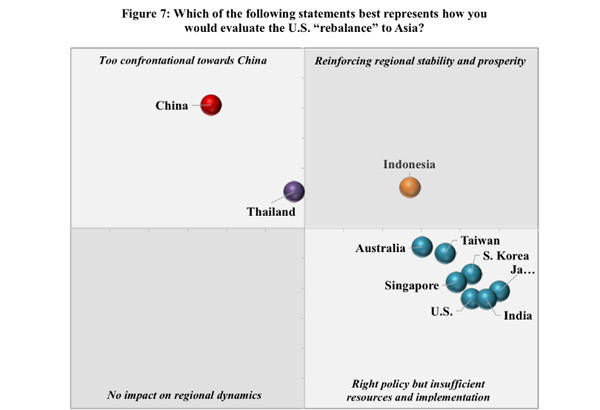Here comes the giant! Experts say China to dominate Asia
MANILA, Philippines - China will overtake the US as the most dominant power in Asia, as the US' rebalance strategy seems to lack the commitment from US leaders for its effective implementation, a study of a Washington-based think tank found.
According to "Power and Order in Asia: A Survey of Regional Expectations" by the Center for Strategic & International Studies said a poll of "targeted strategic elites in 11 Asia Pacific economies (Australia, China, India, Indonesia, Japan, Korea, Myanmar, Singapore, Thailand, and the US)", China is expected to continue its rise as the most powerful nation within Asia.
China's ascent is seen to benefit the region's economy but is adverse to regional security.
"Fifty-three percent of respondents on average believed China will exert the greatest power in East Asia in 10 years, followed by the United States with 43 percent," the study said.
It is interesting, however, that among those polled, only 26 percent of experts from China think that their country will dominate the region. Meanwhile, 68 percent of polled experts from the US think Washington will still reign supreme in Asia.

"The reason that a majority of respondents across the region expect China to exert the greatest power in 10 years [is that] 56 percent of respondents expected China to be their country's most important economic partner in 10 years, followed by the US at 28 percent," the study added.
Despite this outlook, respondents from Australia and South Korea, US allies, expressed strong support for expectations of a continued US-led regional order.
"It is worth highlighting that Chinese respondents overwhelmingly saw the United States as their major economic partner in 10 years (83 percent of respondents), while only 46 percent of Americans saw China as being their nation’s most important future economic partner. This picture of asymmetrical dependence, though based on impressions rather than market predictions per se, might suggest one reason that Beijing will seek to avoid a dangerous confrontation with the United States for the foreseeable future," the study said.

Also, an average of 79 percent of respondents expressed support for the Obama's administration's strategic rebalance to Asia.

"Despite broad support for the rebalance outside of China, there are mixed views about its effectiveness to date—particularly among Americans and close U.S. allies and partners. When asked to evaluate the rebalance, 51 percent
of respondents suggested it is the right policy but is not being resourced or implemented sufficiently, followed by 24 percent who felt it is reinforcing regional stability and prosperity," the report said.
Experts from China, however, believe that the rebalance is "too confrontational toward China".

To address concerns about the US rebalance to Asia, CSIS recommends that Washington should "convince allies and partners that the rebalance is real and that it is properly being resourced, not only in the military sphere, but also in the economic and values areas."
Another recommendation is to encourage China to play a constructive security role.
"The United States should continue its efforts to work with regional states to encourage China to play a constructive role, particularly in the East and South China Seas. The United States should continue to stress to China the importance of respecting and strengthening the existing rules-based system that encourages openness, transparency, and peaceful dispute resolution," CSIS said.
To conduct the study, the CSIS team of Asia scholars identified candidates in the 11 polled economies. Members of the strategic elite were identified as nongovernmental experts who are influential in the debate on international and/or Asian regional affairs. Excluded from the list were serving members of the legislative, judicial, or administrative branches of government or those whose expertise lies outside of international relations or Asia.
A total of 402 respondents participated in the online survey between March 25 and April 22, 2014.
- Latest
- Trending






























